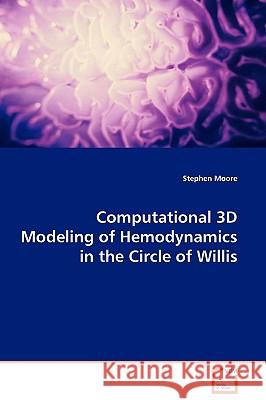Computational 3D Modeling of Hemodynamics in the Circle of Willis » książka
Computational 3D Modeling of Hemodynamics in the Circle of Willis
ISBN-13: 9783639103991 / Angielski / Miękka / 2008 / 392 str.
This book is the culmination of approximately four years of study obtaining my PhD in mechanical engineering, modeling blood flow in the arteries of the human brain. Coming from an engineering background I found that I had very little knowledge of human anatomy, physiology, or medical imaging techniques. Furthermore, it seemed reasonable that there would not be many people possessing a deep knowledge of these fields, and the more engineering related fields of computational fluid dynamics and mathematical modeling. As a result this book contains reasonably detailed background information on all of the aforementioned fields, in order to provide the novice with a well balanced understanding of all aspects of this modeling challenge. The actual body of work involves the development of techniques to segment out the cerebral arteries from magnetic resonance imaging scans, and create the computational meshes. In addition there is the development of a mathematical model of the physiological control system known as the cerebral autoregulation mechanism, and the coupling of this control system to the computational fluid dynamics simulations."
This book is the culmination of approximately four years of study obtaining my PhD in mechanical engineering, modeling blood flow in the arteries of the human brain. Coming from an engineering background I found that I had very little knowledge of human anatomy, physiology, or medical imaging techniques. Furthermore, it seemed reasonable that there would not be many people possessing a deep knowledge of these fields, and the more engineering related fields of computational fluid dynamics and mathematical modeling. As a result this book contains reasonably detailed background information on all of the aforementioned fields, in order to provide the novice with a well balanced understanding of all aspects of this modeling challenge. The actual body of work involves the development of techniques to segment out the cerebral arteries from magnetic resonance imaging scans, and create the computational meshes. In addition there is the development of a mathematical model of the physiological control system known as the cerebral autoregulation mechanism, and the coupling of this control system to the computational fluid dynamics simulations.











